Sayyed Hassan Nasrallah: The eternal flame of resistance against arrogant powers
By Nahid Poureisa
Hezbollah’s martyred leader Sayyed Hassan Nasrallah will be laid to rest on Sunday in the presence of millions of his admirers who have flocked to Beirut to attend his historic funeral.
While he is not physically around anymore, his death does not mean the end of his mission. His martyrdom on September 28 last year marked an eruption of a volcanic force that will reshape history and inspire future generations of resistance fighters and justice seekers.
His pure blood, like that of all martyrs of the resistance front, will fuel the unquenchable fire of justice, the struggle against oppression, and the unyielding march toward freedom of Palestine.
His burial ceremony transcends grief. It is a global phenomenon of defiance, echoing from Lebanon’s valleys to Gaza’s rubble-strewn streets, from Yemen’s rugged mountains to every corner where the oppressed rise against Western imperialism and Zionism.
The martyred leader of the Islamic Resistance in Lebanon stood unshaken while others in the Arab world faltered. He forged not merely an organization but a movement, a movement whose legacy will grow bigger and brighter.
His ideology rejected colonial humiliation, declaring sovereignty non-negotiable and dignity inviolable. He was not a politician but an institution that reshaped the equations of power in West Asia and strengthened the resistance front against the Zionist entity.
His strength was not inherited. It was formed in the crucible of wars, sieges, assassinations, and relentless psychological warfare against the resistance front.
Lebanese mourn Hezbollah's late leader Sayyed Hassan Nasrallah and Executive Council Chief Sayyed Hashim Safieddine
— Press TV 🔻 (@PressTV) February 21, 2025
Follow Press TV on Telegram: https://t.co/B3zXG73Jym pic.twitter.com/SMTbmRhN0L
Hezbollah, born under the shadow of the 1979 Islamic Revolution led by Imam Khomeini, became a force to reckon with under his leadership. It became a parallel society, a fortress of dignity, shielding the oppressed, defying occupiers, and rewriting the rules of resistance.
Sayyed Nasrallah’s speeches were not mere addresses but powerful salvos aimed at the enemy. In his iconic Spider’s Web speech, he dismantled the myth of Israeli invincibility with a single phrase: “Israel is weaker than a spider’s web!”
These words shattered decades of Zionist propaganda, exposing the fragility of their so-called military might. “We are a people who will not be humiliated!” he declared, distilling Hezbollah’s creed into three immutable principles: dignity, resistance, and defiance.
Sayyed Nasrallah’s leadership was inseparable from Imam Khomeini’s revolutionary theology, a doctrine where faith is action, martyrdom is victory, and resistance is divine.
Leader of the Islamic Revolution Ayatollah Seyyed Ali Khamenei sharpened this vision, declaring: “The path to al-Quds is paved with resistance!” Together, they transformed faith into a blueprint for revolution, merging spirituality with resistance.
Sayyed Nasrallah’s unbreakable bond with Haj Qassem Soleimani, Iran’s legendary anti-terror commander, epitomized this creed. Their alliance was no diplomatic formality, but a blood oath, forged in the heat of battle for Palestine’s liberation.
“Follow Ayatollah Seyyed Ali Khamenei,” Nasrallah urged his followers in his final remarks. It was a sacred pledge to preserve and protect the revolution led by Ayatollah Khamenei.
Prominent journalists, activists, influencers flock to Beirut for Sayyed Hassan Nasrallah's funeral
— Press TV 🔻 (@PressTV) February 22, 2025
https://t.co/eaKxtR35XO
Ayatollah Khamenei’s heartfelt eulogy for Sayyed Nasrallah, calling him “my brother, my pride,” was also no political gesture. It was a covenant, a vow that the Axis of Resistance would bend to no empire, no threat, no compromise. It was a beautiful tribute to what the martyred Hezbollah leader did for the resistance front for decades.
He walked the path of Karbala, where Imam Hussein’s (AS) stand against tyranny left a legacy.
“Hussein (AS) stood alone, but his cry shook empires!” Sayyed Nasrallah said. “Martyrdom is not death—it is immortality!”
This philosophy materialized in 2000, when Hezbollah expelled Israeli occupation forces from southern Lebanon, marking the Arab world’s first military victory over the Zionist entity.
In 2006, during Israel’s 33-day war, Hezbollah’s resilience stunned the world. Sayyed Nasrallah turned martyrdom into a weapon, vowing: “Every drop of blood writes Zionism’s obituary.”
For Sayyed Nasrallah, Palestine was not a regional conflict, but a soul of humanity’s struggle.
“We fight not for land, but for justice!” he proclaimed. Under Ayatollah Khamenei’s guidance, Hezbollah’s arms, intelligence networks, and alliances became lifelines for Palestinian resistance. As Sayyed Nasrallah said, to abandon Palestine is to surrender the future.
Sayyed Nasrallah was no ordinary leader. He was a master strategist who could outsmart and overpower the enemy despite limited resources.
He outmaneuvered empires with his sharp wit and wisdom. “They study our weapons, but they fear our will!” he once said, exposing Zionism’s fatal flaw: arrogance.
Exclusive: ‘He lived among people’
— Press TV 🔻 (@PressTV) December 15, 2024
Zainab Nasrallah reflects on her iconic father’s life and legacy
Follow Press TV on Telegram: https://t.co/B3zXG73Jym pic.twitter.com/QSRFwm7oYr
“Political Islam withers when it trades dignity for power,” he warned. Hezbollah thrived because it adhered to Imam Khomeini’s path: Resist. Build. Never compromise.
Sayyed Nasrallah’s martyrdom is not an epilogue,it is a prologue. As Zubur al-Muqawamah notes in his book, the blood of the righteous does not vanish, it courses through history’s veins, breathing life into the struggle.
The Axis of Resistance is no mere alliance, but a hurricane, uprooting collaborators and cowards. From Lebanon to Iraq to Yemen, the martyred Hezbollah leader’s shadow looms.
“The road to liberation is paved with martyrs,” Ayatollah Khamenei reminded us.
Sayyed Nasrallah’s blood now fuels a new generation, Hamas in Gaza hurling Molotovs, fighters in Syria reclaiming villages, and students in Tehran chanting “Death to America!”
His life screamed one truth: Resistance is eternal. His legacy is not stone memorials but rage that burns in every child who throws a stone, every mother who defies checkpoints, every fighter who chants “Death to Israel!”
The great revolution Imam Khomeini started, Sayyed Ayatollah Khamenei continued, and Nasrallah armed cannot be stopped. As Zionism trembles and empires decay, his voice thunders across time: “The spider’s web collapses. The dawn rises.”
The martyrs are watching. The fight goes on, and Sayyed Nasrallah’s flame will never die.
Nahid Poureisa is an Iranian analyst and academic researcher focused on West Asia and China.
(The views expressed in this article do not necessarily reflect those of Press TV.)
Hamas blasts Western media for blindly defending false Israeli narrative
ElBaradei condemns US threats of military action against Iran
‘No two-hour war’: Iran vows immediate retaliation to any attack
VIDEO | US warmongering threatens stability
Pezeshkian: US must end provocations if it seeks genuine diplomacy
Iran summons German ambassador over Merz’s ‘low-minded’ remarks
Iran's Armed Forces warn EU of ‘consequences’ of IRGC designation
Iran FM: EU’s blacklisting of IRGC a ‘major strategic mistake’


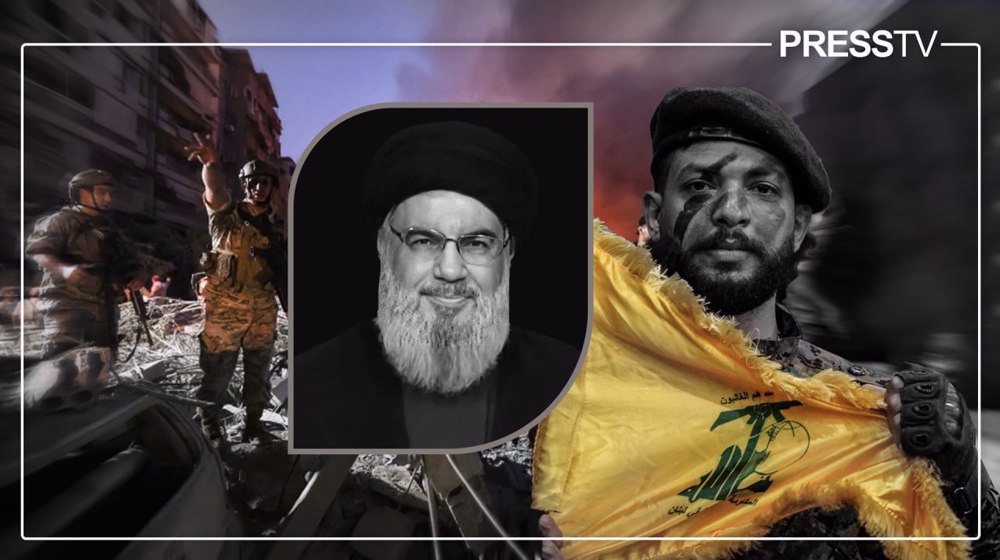
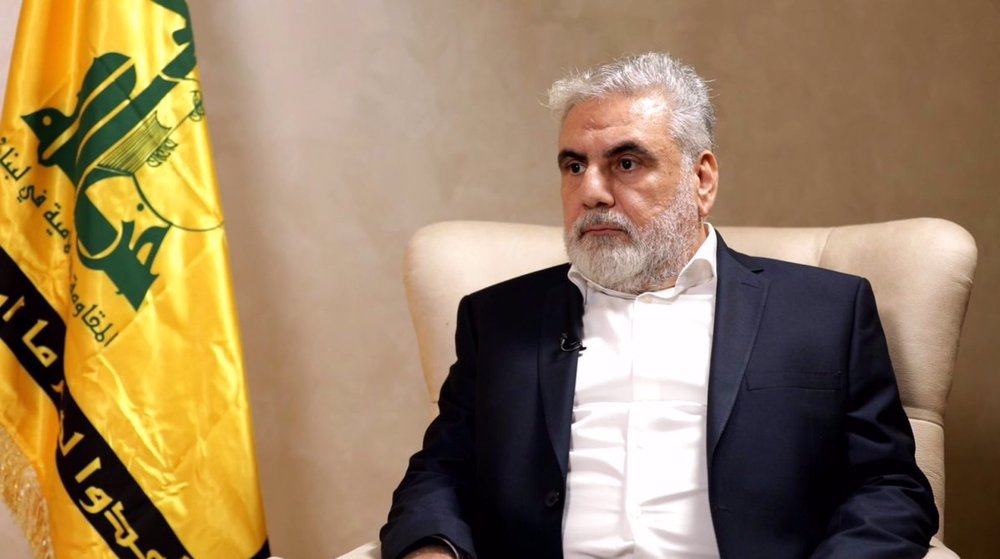
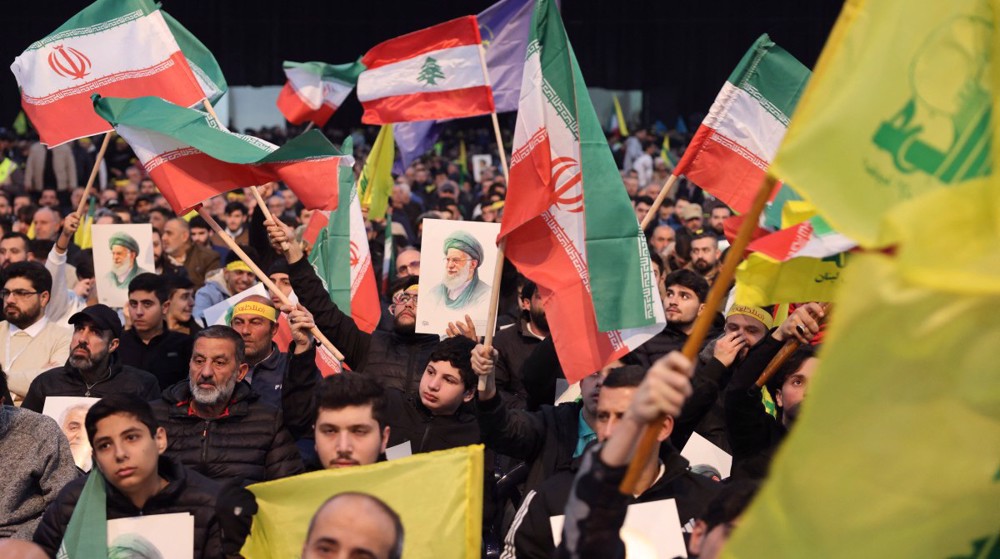
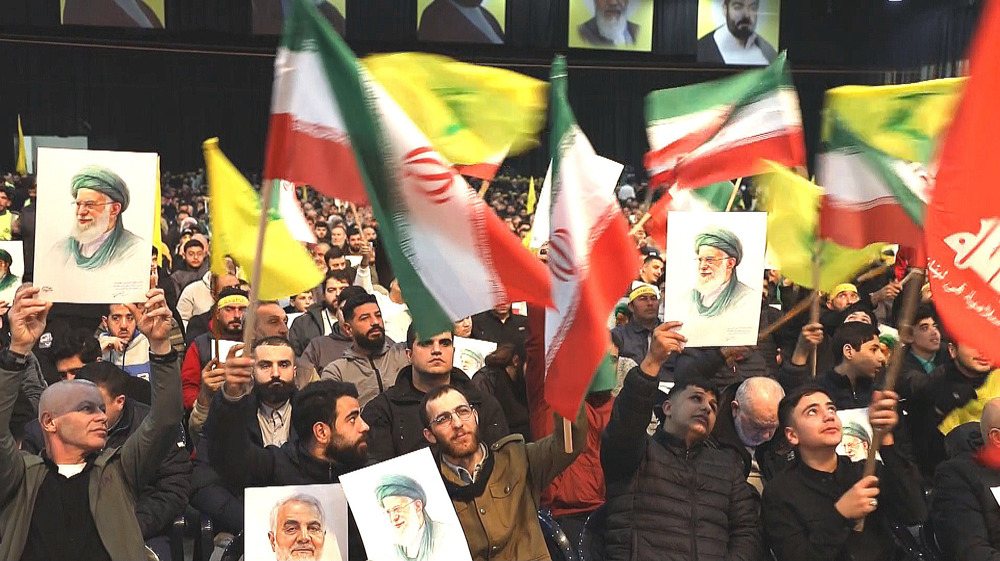



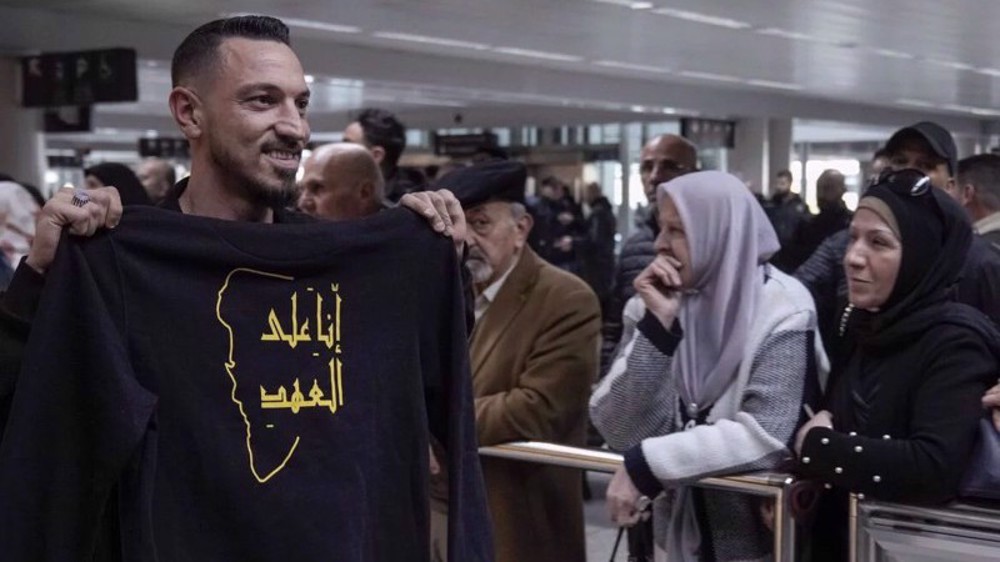
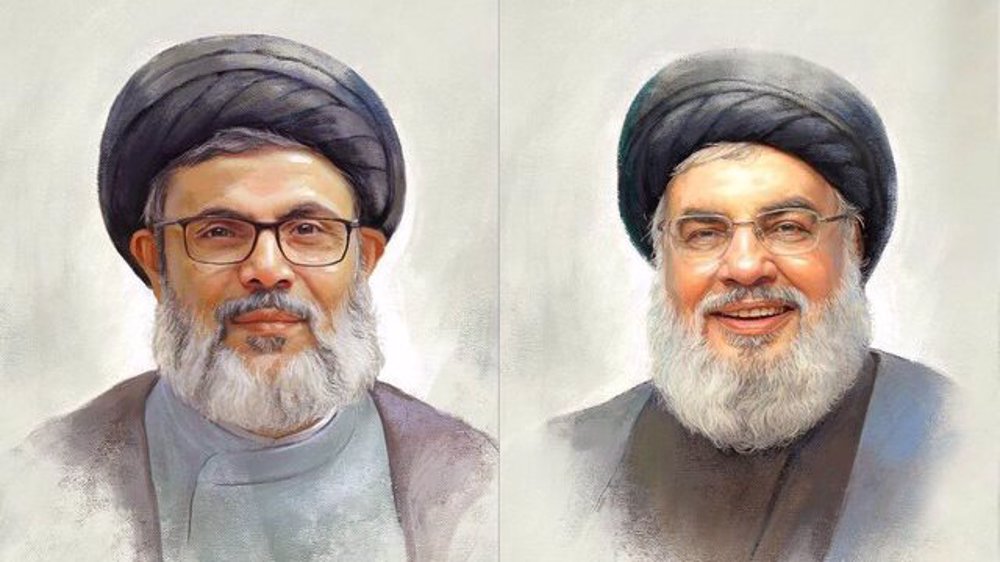
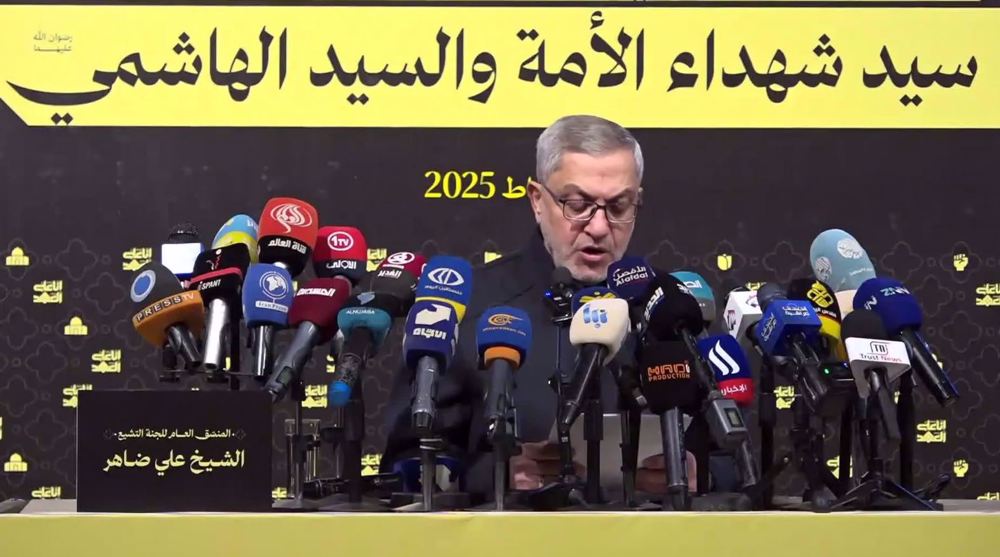
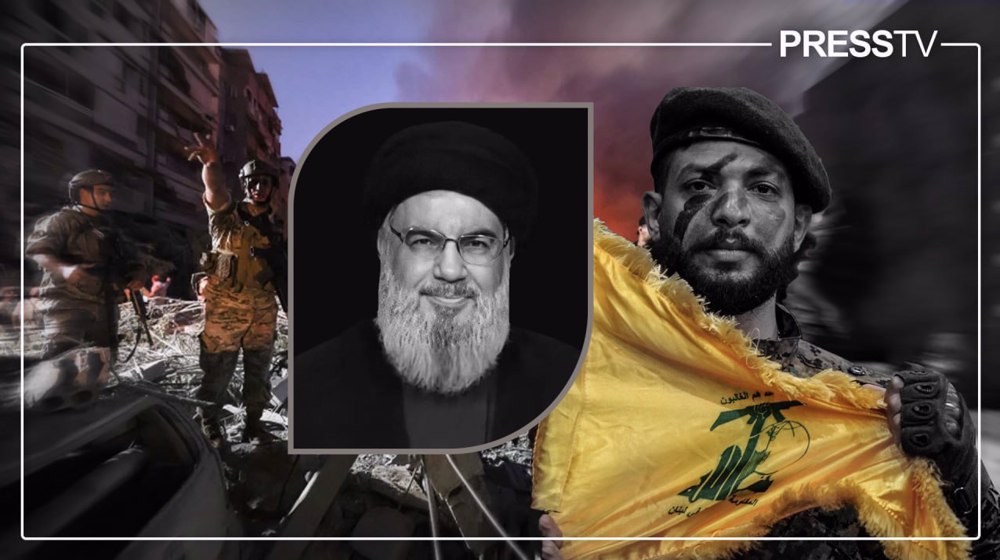
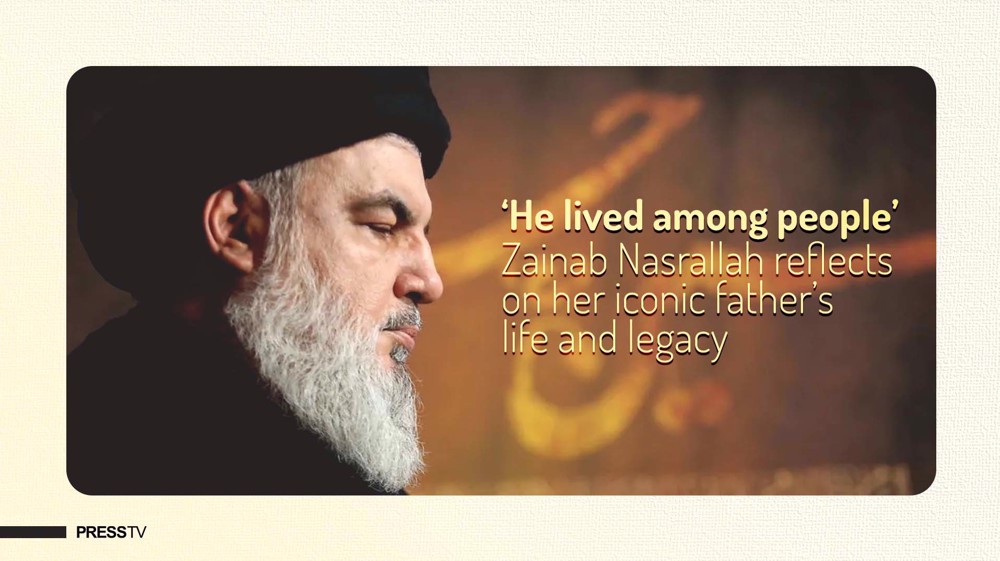

 This makes it easy to access the Press TV website
This makes it easy to access the Press TV website